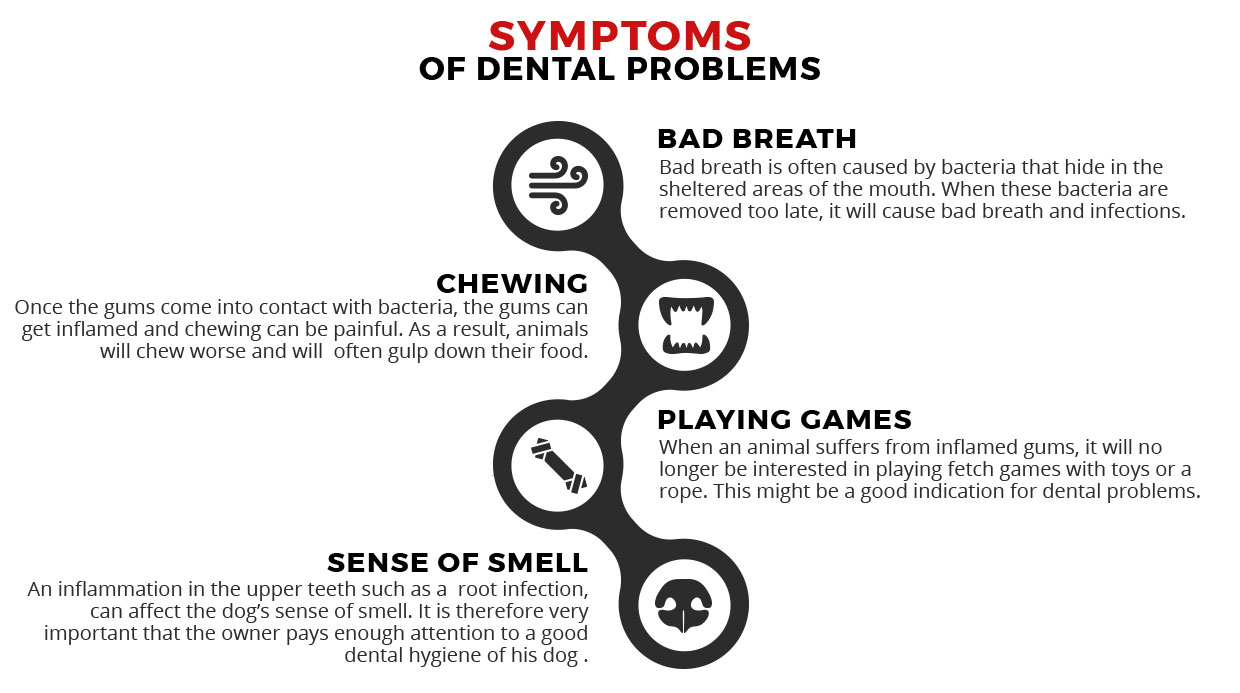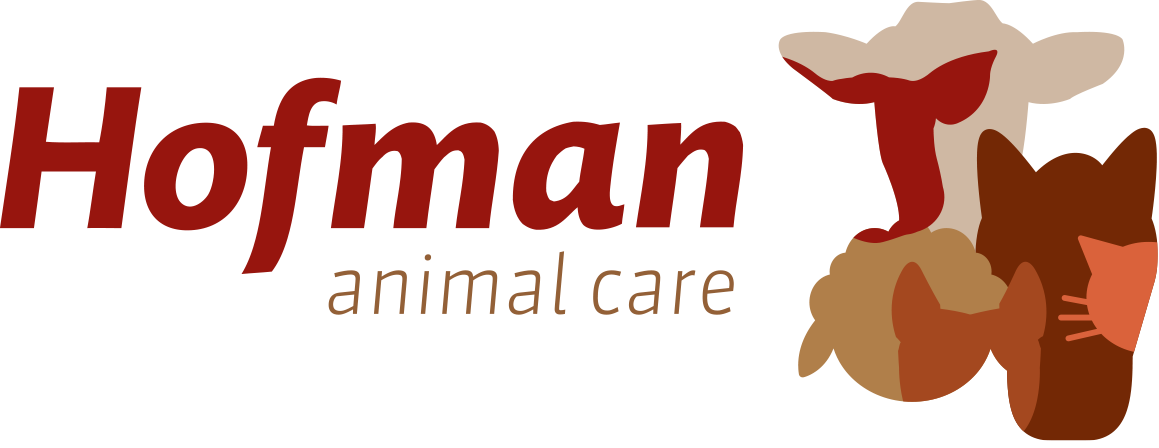It is a fact that 80% of the dogs over the age of three, suffer from dental problems such as plaque and tartar. Ignoring the problem may cause a high risk to irreparable damage to gums, teeth, molars and jaws.
Development of dental problems
It all starts with plaque that grows on the surface of the teeth; a white-yellow film of food particles and bacteria. When not removed, it can harden to form tartar. This will extend over the entire tooth or molar and also under the gumline. There it causes a painful inflammation (Gingivitis). When the infection spreads along the roots, we speak of Periodontitis. In time, teeth and molar will lose their grip and become loose.

Good to know: most dogs will gobble their food without chewing which may lead to mistakingly thinking that they do not suffer from dental problems. A regular check of the teeth or check-up by the vet is no luxury.
Brushing
How can dental problems be prevented? The answer is brushing: teach your dog, when still young, to allow its teeth to be brushed. You cannot start early enough. We have special starter kits available, containing dog toothpaste, finger brushes and a special brush.
Food
Just as important to the teeth is the food of your dog. Make sure the chunks have the right size. Max Dog Food is a food line that meets these requirements. The chunks have a large size with sufficient structure. For dogs who do not allow their teeth to be brushed, or where plaque or tartar builds up again despite of brushing, we offer Dental Oral Care. Dental Oral Care ensures that plaque does not stand a chance and prevents the building of tartar.
Besides, all kinds of bones are available like the Chew it One per day sticks. In addition, we have several kinds of toys that clean the teeth whilst playing.
Facts about dog teeth
The dog is a real meat eater (carnivore) and therefore has typical carnivore teeth. This means that the teeth are suited to catch a prey (strong canines) and to tear it apart (large cutting teeth). The development of the teeth already starts in the uterus where the tooth germs are developed to the unborn foetus. Just like humans, the dog has milk teeth and permanent teeth.
Replacing of the teeth
Puppies are born without teeth. After two to four weeks, the first puppy teeth teeth will emerge. Once a young dog is about 7 months old, all teeth will have been replaced by the permanent teeth.
The permanent teeth of the dog contains 42 elements:
- 12 incisors (6 upper jaw and 6 lower jaw)
- 4 canines (2 upper jaw and 2 lower jaw)
- 16 premolars (8 upper jaw and 8 lower jaw)
- 10 molars (4 upper jaw and 6 lower jaw)
Untreated plaque and gum disease
Dental plaque and gum disease can eventually lead to chronical inflammation. Teeth, fixation of the teeth in the bone tissue of the jaw, the jaw itself and the gums, can seriously be affected. At this stage, your dog will suffer from a lot of pain in the mouth. Also, your dog could get ill or get a fever because of the inflammation. This happens when the bacteria enter the bloodstream. Certainly in heart and kidney patients, dental problems can be very dangerous.
Wearing down of the teeth
Many dogs like to play with sticks and tennis balls. Other dogs like to chew on the bars of the bench or on a dog chain. If this is done too often, the teeth will wear down very quickly. Make sure the toys of your dog are made specially for dogs and the dog's teeth. This way, the teeth of your dog will remain undamaged despite of hours of play fun.



